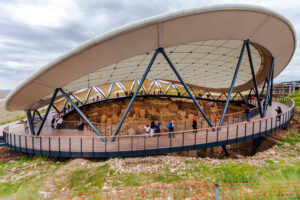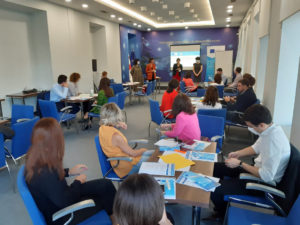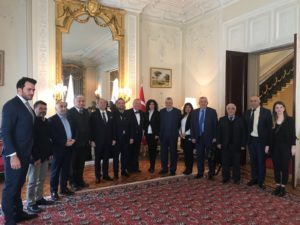
Technical Assistance for Implementation of Civil Society Dialogue and Civil Society Support Programmes (TR2015/DG/01/A5-01/001)
The overall aim of the project is to increase bilateral exchanges and cooperation between CSOs in Turkey and the EU at local, regional and national levels, to promote awareness raising initiatives on importance and benefits of membership of Turkey to the EU within Turkey and EU and on

Technical Assistance for Strengthening Social Dialogue, for Innovation and Change in Turkey
It can be said that the progression through an in-depth training programme and an understanding of the techniques associated are essential for a contemporary understanding of social dialogue concepts and their implementation. In this regard, the project aimed at social development and the enhancement of social cohesion within

Technical Assistance for Revitalisation of History in Şanlıurfa
While tourism has been, and continues to be, important to the local economy, it has not matched its potential. To remedy this and attract more tourists, local government and businesses in the city decided to ensure that the standard of services offered to visitors met internationally accepted standards

Facility for the Implementation of the EU-Georgia Association Agreement- II
The project aims to strengthen the capacity of public institutions in Georgia to meet the country’s commitments under the EU-Georgia Association Agreement (AA), including the Deep and Comprehensive Free Trade Area.

Technical Assistance for Establishment of Rize Tea Research and Application Centre
Rize has the best reserves of tea in Turkey, however, the SMEs in the Tea region is not qualified enough to compete. Hence, the general purpose of the project was to increase the competitiveness of the tea sector concentrated in Rize and its surroundings. More specifically, it wanted

Technical Assistance for Supporting the Solution of Economic and Social Integration Problems in Diyarbakır, Şanlıurfa, Gaziantep, and Erzurum, as Major In-Migrant Destinations
Rapid migration in major urban areas, namely Diyarbakır, Şanlıurfa, Gaziantep and Erzurum (DGES), have adverse impacts in Turkey. To reduce these unfavourable effects, EKOSEP aimed to support social integration and environment-related infrastructure problems due to migration in the selected provinces in a multi-actor manner. Furthermore, it aimed to

